THATCamp Workshops are the heart of any THATCamp (un)Conference. We all love to learn something new, or learn something better.
We are planning to offer Workshops on Thursday and Friday Morning (Please see schedule).
These are the Workshops we have planned so far! If you can teach a workshop, please let us know!! We are adding more every day!
Build a WordPress Website In One Hour or Less!
 Learn to build a website with WordPress Blogging software hands-on. This will be held in the computer lab. No coding experience required! A beginners workshop for anyone who wants to build a WordPress Site like the one you are on right now.
Learn to build a website with WordPress Blogging software hands-on. This will be held in the computer lab. No coding experience required! A beginners workshop for anyone who wants to build a WordPress Site like the one you are on right now.
Michelle Kassorla is the coordinator of THATCamp HBCU, and a lecturer in Clark Atlanta University’s WISE QEP program. She has been teaching WordPress for three years.
Introduction to Zotero
Making the Teaching of Style Almost Obsolete!
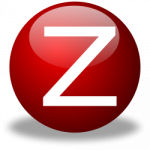 Zotero is a free open-source program created by the Center for History and the New Media at George Mason University (where THATCamp originated!!). It works with Firefox as an add-on, and on Safari and Google Chrome as a stand alone program. It also has an extremely powerful Microsoft Word plug-in which makes teaching style to our students almost obsolete!
Zotero is a free open-source program created by the Center for History and the New Media at George Mason University (where THATCamp originated!!). It works with Firefox as an add-on, and on Safari and Google Chrome as a stand alone program. It also has an extremely powerful Microsoft Word plug-in which makes teaching style to our students almost obsolete!
Michelle Kassorla is the coordinator of THATCamp HBCU, and a lecturer in Clark Atlanta University’s WISE QEP program. She has been using Zotero for years, and has just started introducing it to all of her students, random people at the computer lab, and anyone she can stop on the street.
Tips and Tricks on iPad
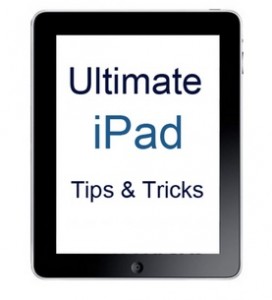 A demonstration of some of the new features in iOS5 with a focuses on the educational relevance. The workshop is designed to show ways to more efficiently use your iPad. The seminar is designed to be sharing and interactive so bring a tip/workflow/app to share. The target audience is educational iPad users. Personal iPad Recommended
A demonstration of some of the new features in iOS5 with a focuses on the educational relevance. The workshop is designed to show ways to more efficiently use your iPad. The seminar is designed to be sharing and interactive so bring a tip/workflow/app to share. The target audience is educational iPad users. Personal iPad Recommended
Andre Vlajk, Higher Education Account Manager in Technology Assessment, Planning, and Consulting for Apple.
Beyond Textbooks: Creating textbooks, distributing via new iTunes U, and access textbooks on the new iBooks
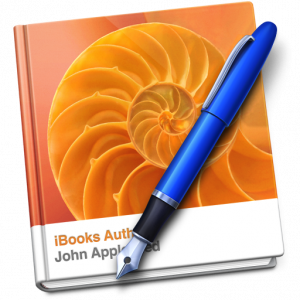 How to use iBook Author, iTunes U app and iBooks 2 on January 19th, 2012. See a demonstration to explore usage of these new tools. See www.apple.com/education/ for an overview. No iPad Required.
How to use iBook Author, iTunes U app and iBooks 2 on January 19th, 2012. See a demonstration to explore usage of these new tools. See www.apple.com/education/ for an overview. No iPad Required.
Andre Vlajk, Higher Education Account Manager in Technology Assessment, Planning, and Consulting for Apple.
Note-able Software
Evernote and Microsoft OneNote
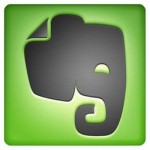 Notebook software can be the best option for an overall organizational tool at a low cost. Chystal Renfro and Mary Axford will introduce the two most common and most powerful notebook software programs, Evernote and Microsoft OneNote.
Notebook software can be the best option for an overall organizational tool at a low cost. Chystal Renfro and Mary Axford will introduce the two most common and most powerful notebook software programs, Evernote and Microsoft OneNote.
![]()
The discussion will include characteristics to consider when choosing a notebook software application and how to most effectively use them to organize your personal and professional life. We will give a walking tour of both products using real life notebooks which illustrate characteristics such as device compatibility, organizational structure, and note formats.
Crystal Renfro and Mary Axford are subject librarians in the Faculty Engagement Department of the Georgia Institute of Technology Library. Both have an interest in tools to increase academic productivity and workflow, and teach library workshops on these topics. Their upcoming article on notebook software will be published in the May/June 2012 issue of the journal Online.
Think Like a Programmer:
Learning LaTex as an Introduction to Programming Syntax
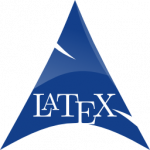 Peter Molnar will walk you through this hands-on workshop in learning LaTex, providing you with all the information you need to create a document and begin thinking like a programmer–with no programming or coding experience required.
Peter Molnar will walk you through this hands-on workshop in learning LaTex, providing you with all the information you need to create a document and begin thinking like a programmer–with no programming or coding experience required.
Peter Molnar is an Associate Professor of Computer Science at Clark Atlanta University.
Google Tools
How We Use the World of Google Tools in our Classrooms
 Google Tools are powerful, free, and engaging. This is a session about Google Tools in the Classroom–how we use them, and what we do with them. This session will be moderated, but it is open for sharing and swapping best practices with Google Tools.
Google Tools are powerful, free, and engaging. This is a session about Google Tools in the Classroom–how we use them, and what we do with them. This session will be moderated, but it is open for sharing and swapping best practices with Google Tools.
Moderated by Vance Ricks, Associate Professor of Philosophy, and hard-core technophile from Guilford College, Greensboro, NC.
Productivity with ideas
Software for Tracking and Transforming
What You’ve Found and Thought
 We generate ideas, save articles from journals and databases, take notes at meetings, jot down notes during phone calls, archive emails, have wow! moments during conversations – but how do we keep track of all these ideas? We don’t know which ones will end up being useful, so we tend to save them all.
We generate ideas, save articles from journals and databases, take notes at meetings, jot down notes during phone calls, archive emails, have wow! moments during conversations – but how do we keep track of all these ideas? We don’t know which ones will end up being useful, so we tend to save them all.
There is software that can help you take these different kinds of items, combine them, play with them, uncombine them, put them back together differently, and ultimately make sense of them and turn them into new knowledge. This session will cover some different types of software for dealing with these issues. We’ll look at actual databases using examples of these types of software so that you can see typical problems they can address and get a sense of how they work.


Pingback: Welcome to THATCamp HBCU 2012! | THATCamp Historically Black Colleges and Universities
Here’s an idea for the developer’s challenge:
Create user-friendly app. that highlights the special collections at HBCU libraries.
Bootcamp Idea:
How to identify and write HBCU-directed grants.
I’m new at my HBCU, but one of the themes running through many of my interactions so far has been the belief (expressed by my new colleagues) that our campus is less-well-funded than non-HBCU campuses. Certainly our technological infrastructure is more dated than other that of campuses at which I’ve worked.
This in mind, my suggestion would be to consider a mini-focus on work-arounds: solutions for contexts without data projectors, wireless connections, robust digital course management systems, etc. More pointedly, how do we bring our THATCamp learning to students who may have cell phones but whose only access to a computer is in a minimally supplied lab?
Great Idea, Jenni!!
Jenni, that’s a great idea. I also would like us to consider access on the student side and think about workarounds for them from a pedagogical standpoint. For example, last spring I set up a Gowalla Library trip and some mobile activities for my first-year students, then discovered that a good chunk of them were without smart phones. We came up with some alternatives (mobile Gowalla on their laptops, for example) but it would be helpful to think about access issues from their perspective. Also, given this particular context, what are the challenges for HBCUs in the DH?
love the ideas above. How about getting the students involved in programming, role playing and performing within Second Life. This experience ready them for using those skills within other virtual worlds and a different form of social interaction. Using the existing project of Virtual Harlem/Montmartre, they can then focus on “doing things” within the world as opposed to having to create it. Although there may be an opportunity to teach those interested in doing so, how to “build” within virtual environments. I would love to get Virtual Harlem/Montmartre project some HBCU exposure and get students involved somehow.
I’m interested in teaching a bootcamp on doing African-American history with digital tools. Please email me to talk about what kinds of material might be useful.
Nicely developed site! I’ve been visiting your Cotton Club for a couple of years but never went outside, thinking the rest was another sim. The CAU WISE (wiseresources.wordpress.com) program can accommodate Second Life interests in our computer lab, even providing avatars for those without. Also, since WISE has two islands and Instructional Technology Assistants on staff (undergrad WISE students), we can also offer workshops for anyone who’d like to try out building or create an environments that requires no building.
There’s an incredibly rich, large, educational virtual location on Second Life called the Museum of the African American Experience. We (WISE, wiseresources.wordpress.com) have our freshman and sophomore students do research and writing assignments every year based on the museum’s holdings. We’ve also built a slave ship in Second Life that students are powerfully impacted by during their Trans-Atlanta Slave Trade immeresive experience in world history. Will be happy to take you to both venues during the camp.